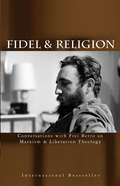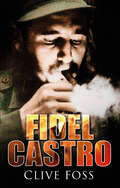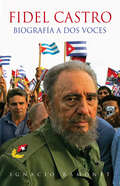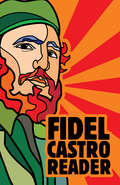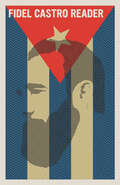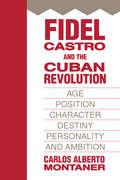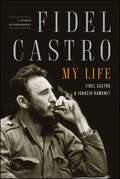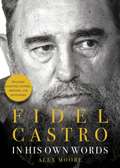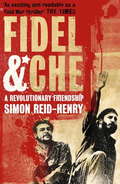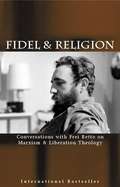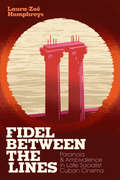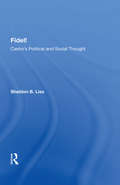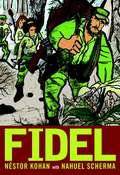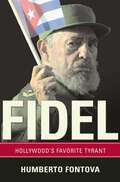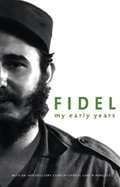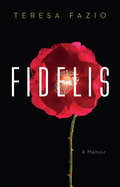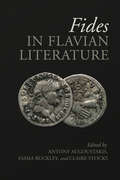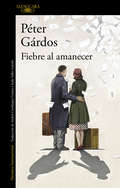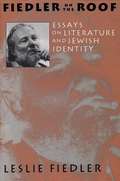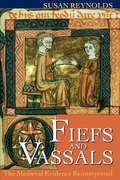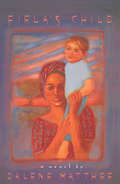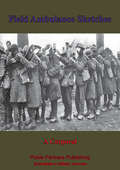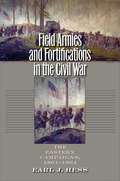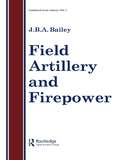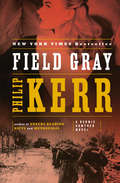- Table View
- List View
Fidel & Religion: Conversations with Frei Betto on Marxism & Liberation Theology
by Fidel Castro Frei Betto Armando HartA bestseller that offers an intimate insight into Fidel Castro, the man behind the beard! · This historic encounter between religion and revolution paved the way for Pope John Paul II's historic visit to Cuba in 1999 and the rule change in the Cuban Communist Party (1992) accepting as members those practicing their religious faith ·
Fidel Castro
by Clive FossFidel Castro is a dynamic and charismatic leader, who has led Cuba through success and failures since 1959. Son of a rich landowner, he became a radical revolutionary who attempted to overthrow the government in 1956 with a tiny band of followers. Using propaganda and subversion as much as sudden attacks from his mountain hideout, he gained victory in 1959. He liberated his country from one dictator and the overwhelming influence of the United States, only to turn it into another dictatorship firmly under the control and patronage of the Soviet Union. The failure of the American attack at the Bay of Pigs in 1961 added to his reputation, while the missile crisis of 1962 put Cuba right at the centre of the Cold War. Later, by sending his army to Africa and supporting guerrilla movements in Latin America, he made Cuba a signficant player on the world stage. Despite many attempts to remove him and the economic collapse of the USSR, Castro survived and in 1999, celebrated 40 years of his regime.
Fidel Castro
by Ignacio RamonetSociólogo, teórico de la cultura, periodista y una de las voces más representativas del movimiento altermundista, Ignacio Ramonet ha logrado desvelar -tras semanas de intensas conversaciones- las claves de la Revolución cubana a través de la biografía humana y política del último «monstruo sagrado» de la política internacional: el polémico Fidel Castro. Testimonio excepcional y análisis histórico, este libro es una auténtica «biografía a dos voces»: la memoria oral del comandante. ¿Cómo fue su infancia? ¿Dónde y cuándo se forjó el rebelde? ¿Cómo eran sus relaciones con Che Guevara? ¿Estuvo el mundo al borde de una guerra nuclear durante la llamada «crisis de los misiles»? ¿Cuántas veces han querido asesinarlo? ¿Qué impresión le causó el Papa Juan Pablo II cuando visitó la isla en 1998? ¿Por qué critica tanto a Felipe González y a José María Aznar mientras alaba la figura del rey Juan Carlos? ¿Qué piensa de la globalización neoliberal, de la guerra de Irak y del presidente Bush? ¿Por qué las autoridades cubanas arrestaron a unos setenta opositores no violentos en marzo de 2003 y aplicaron, ese mismo año, la pena de muerte a los secuestradores de una lancha? ¿Existe la corrupción en el régimen? ¿Es el socialismo en Cuba realmente «irreversible»? ¿Hacia dónde caminala política y la economía de la isla? ¿Qué ocurrirá después de Fidel Castro? El exhaustivo cuestionario de Ignacio Ramonet -más de cien horas de entrevistas y de inéditas revelaciones- es al tiempo un recorrido apasionante por la controvertida figura de Fidel Castro y un formidable relato sobre el pasado, el presente y el porvenir de la Revolución.
Fidel Castro Reader
by Fidel Castro David DeutschmannAn outstanding new anthology of one of history's greatest oratorsHere, at last, is a comprehensive anthology presenting the voice of one of history's greatest orators, Fidel Castro. Love him or hate him, there is no denying he is a "master of the spoken word," as Gabriel García Márquez has described him.Emerging in the 1960s as a leading voice in support of Third World anticolonial struggles and continuing to play a role in the antiglobalization movement of today, Fidel Castro remains an articulate and penetrating--if controversial--political thinker and leader, who has outlasted ten hostile US presidents.His direct, forthright approach, his incredible grasp of diverse economic, historical, and cultural topics, and his idealism stand in stark contrast against the spin and superficiality of most political leaders.Covering five decades of Fidel's speeches, this selection begins with his famous courtroom defense ("History will Absolve Me"), and also includes his speech on learning of Che Guevara's death in Bolivia, his analysis of the collapse of the Soviet Union, and his response to the 9/11 terrorist attacks. With his declining health and the emergence of new leaders such as Hugo Chávez in Venezuela and Evo Morales in Bolivia, this book sheds light not just on Castro's mighty role in Latin America's immediate past, but also on his legacy for the future.The Fidel Castro Reader includes a chronology of the Cuban Revolution, an extensive glossary and index as well as 24 pages of photos. As the first anthology of Castro's speeches to be published in English since the 1960s, this is an essential resource for both scholars and general readers. "Fidel's devotion to the word is almost magical." -- Gabriel García Márquez "Fidel is the leader of one of the smallest countries in the world, but he has helped to shape the destinies of millions of people across the globe."--Angela Davis "Fidel Castro is a man of the masses... The Cuban revolution has been a source of inspiration to all freedom-loving people."--Nelson Mandela "Fidel's is a singing and dancing intellect."--Alice Walker "The editors] have done an admirable, even heroic, job of editing and excerpting this reader [which] serves a purpose for both historians and politicos." --Foreword magazine
Fidel Castro Reader
by Fidel CastroA comprehensive anthology with more than 30 speeches that span five decades by Fidel Castro, one of history&’s greatest orators.Emerging in the 1960s as a leading voice in support of anticolonial struggles, then continuing to play a role in the antiglobalization movement in the subsequent decades, Fidel Castro was an articulate and penetrating—if controversial—political thinker and leader, who outlasted ten US presidents.Covering five decades of Fidel&’s speeches, this selection begins with his famous courtroom defense (&“History will Absolve Me&”), and also includes his speech on learning of Che Guevara&’s death in Bolivia, his analysis of the collapse of the Soviet Union, and his response to the 9/11 terrorist attacks. With his declining health and the emergence of new leaders such as Hugo Chávez in Venezuela and Evo Morales in Bolivia, this book sheds light not just on Castro&’s mighty role in Latin America&’s past, but also on his legacy for the future. Love him or hate him, this anthology demonstrates that Fidel Castro is a &“master of the spoken word,&” as Gabriel García Márquez has described him.The Fidel Castro Reader includes a chronology of the Cuban Revolution, an extensive glossary and index as well as 24 pages of photos.
Fidel Castro and the Cuban Revolution: Age, Position, Character, Destiny, Personality, and Ambition
by Carlos Alberto MontanerPerhaps the foremost social analyst and journalist on Cuban affairs, Carlos Alberto Montaner has written a definitive study of the Cuban regime from the vantage point of the Cuban dictator. This is not simply a history of Cuban communism but rather a personal history of its leader, Fidel Castro. Montaner's extraordinary knowledge of the country and its politics prevents the work from becoming a psychiatric examination from afar. Indeed, what personal irrationalities exist are seen as built into the fabric of the regime itself, and not simply as a personality aberration.Fidel Castro and the Cuban Revolution is not an apologia for past United States involvement in Cuban affairs. The author is severe in his judgments of such participation. Nor is he sparing in his sense of the betrayal of the original purposes of the Revolution of 1959 manifested in the character and policies of Fidel Castro. As the work progresses from a study of the victims to a study of the beneficiaries of the Cuban Revolution, it leaves the reader with a deep sense of the tragedy of a revolution betrayed, but not one that could have easily been avoided.Montaner is an ""exile"" like the great Alexander Herzen before him. His decision to live in Europe was made by choice, not of necessity. He sees his role as critical analyst, not as restoring the status quo ante. A most valuable aspect of this book is its intimate reevaluation of Fulgencio Batista. Whatever the reader's judgment of Montaner's work, no one can read it and be dismissive of the effort. It is a work of intimacy even through written in exile--and hence must be viewed as an important effort to understand the character of the man and regime who have changed the course of Cuban history in our times.
Fidel Castro: A Spoken Autobiography
by Fidel Castro Ignacio Ramonet Andrew HurleyFidel Castro is perhaps the most charismatic and controversial head of state in modern times. A dictatorial pariah to some, he has become a hero and inspiration for many of the world's poor, defiantly charting an independent and revolutionary path for Cuba over nearly half a century. Numerous attempts have been made to get Castro to tell his own story. But only now, in the twilight of his years, has he been prepared to set out the details of his remarkable biography for the world to read. This book is nothing less than his living testament. As he told reporters, his desire to finish checking its text was the one thing that kept him going through his recent illness. He presented a copy of the book in its Spanish edition to his compadre President Hugo Chávez of Venezuela. In these pages, Castro narrates a compelling chronicle that spans the harshness of his elementary school teachers; the early failures of the revolution; his intense comradeship with Che Guevara and their astonishing, against-all-odds victory over the dictator Batista; the Cuban perspective on the Bay of Pigs and the ensuing missile crisis; the active role of Cuba in African independence movements (especially its large military involvement in fighting apartheid South Africa in Angola); his relations with prominent public figures such as Boris Yeltsin, Pope John Paul II, and Saddam Hussein; and his dealings with no less than ten successive American presidents, from Eisenhower to George W. Bush. Castro talks proudly of increasing life expectancy in Cuba (now longer than in the United States); of the half million students in Cuban universities; and of the training of seventy thousand Cuban doctors nearly half of whom work abroad, assisting the poor in Africa, Asia, and Latin America. He is confronted with a number of thorny issues, including democracy and human rights, discrimination toward homosexuals, and the continuing presence of the death penalty on Cuban statute books. Along the way he shares intimacies about more personal matters: the benevolent strictness of his father, his successful attempt to give up cigars, his love of Ernest Hemingway's novels, and his calculation that by not shaving he saves up to ten working days each year. Drawing on more than one hundred hours of interviews with Ignacio Ramonet, a knowledgeable and trusted interlocutor, this spoken autobiography will stand as the definitive record of an extraordinary life lived in turbulent times.
Fidel Castro: In His Own Words
by Alex MooreFrom revolutionary and symbol of strength to Cold War adversary, Fidel Castro was one of the world’s most controversial leaders, and perhaps its most enduring. As Cuba’s towering and charismatic president for nearly fifty years, Castro’s influential leadership captivated allies and enemies alike. By virtue of passionate oration and committed sense of purpose-good or bad-Castro kept the Cuban people devoted and the world enthralled.From his earliest years as a student rebel to his role in Cuba's social reform to The Cuban Missile Crisis, his life is covered in extensive detail within this book. The transfer of power to Raul Castro is explored as well as the changes to Cuban/American diplomatic relations, including Obama’s view of America’s relationship with Cuba. Castro’s death is covered as well as the world’s the reaction to it, including the views of American and Cuban people and the differing reactions of Obama and Trump.
Fidel and Che: The Revolutionary Friendship Between Fidel Castro and Che Guevara
by Simon Reid-Henry'As exciting and readable as a Cold War thriller' The Times'Brings back the danger and intense emotions of that revolutionary period...it reads like adventure fiction' IndependentThe story of the remarkable and revolutionary friendship between two of the most iconic figures in twentieth century history - Fidel Castro and Ernesto 'Che' Guevara.Not yet thirty, Fidel Castro and Ernesto Guevara met in 1955 while both in exile in Mexico City. Guevara, the Argentine doctor plagued by asthma, had reached the end of the travels he began by motorcycle several years before. Fidel Castro, peasant's son, scholar and rebel, had just fled Cuba, fearing for his life. Over the next twelve years, until Guevara's death in 1967, their journey together would take them from the safe houses of Mexico's political underground, to war in the Cuban mountains and ultimately into the heart of the Cold War. Drawing on extensive research, including declassified material and interviews with key figures in Havana, Moscow and Washington, Simon Reid-Henry uncovers, for the first time, the full story behind the central relationship of the Cuban revolution: their shared revolutionary ambitions, their conflicting personalities, the wilfulness that bound them together and the pressures that would tear them apart. Fidel and Che is the story of two men who shared a common dream; who became friends, comrades and brothers-in-arms; and who, finally, would make an epic choice between their friendship and their beliefs.
Fidel and Religion: Fidel Castro in Conversation with Frei Betto on Marxism and Liberation Theology
by Fidel Castro Frei BettoIn an intimate 23-hour dialogue with Brazilian liberation theologist Frei Betto, Fidel Castro revealed much about his personal background and candidly discussed his views on religion.
Fidel between the Lines: Paranoia and Ambivalence in Late Socialist Cuban Cinema
by Laura-Zoë HumphreysIn Fidel between the Lines Laura-Zoë Humphreys traces the changing dynamics of criticism and censorship in late socialist Cuba through a focus on cinema. Following the collapse of the Soviet Union, the Cuban state strategically relaxed censorship, attempting to contain dissent by giving it an outlet in the arts. Along with this shift, foreign funding and digital technologies gave filmmakers more freedom to criticize the state than ever before, yet these openings also exacerbated the political paranoia that has long shaped the Cuban public sphere. Drawing on ethnographic fieldwork, textual analysis, and archival research, Humphreys shows how Cuban filmmakers have historically turned to allegory to communicate an ambivalent relationship to the Revolution, and how such efforts came up against new forms of suspicion in the 1990s and the twenty-first century. Offering insights that extend beyond Cuba, Humphreys reveals what happens to public debate when freedom of expression can no longer be distinguished from complicity while demonstrating the ways in which combining anthropology with film studies can shed light on cinema's broader social and political import.
Fidel!: Castro's Political And Social Thought
by Sheldon B. LissThe author of this book takes a highly original approach to understanding the past three decades of Cuban history–he offers an analysis and interpretation of the prolific writings and speeches of Fidel Castro and of numerous interviews with him. Through Castro’s own words, Sheldon Liss examines the evolution of the Cuban leader’s political and soci
Fidel: An Illustrated Biography of Fidel Castro
by Nahuel Scherma Nestor Kohan Elise Buchman Miracle JonesIn the United States, ninety miles from Cuban shores, tempers flare on the subject of Fidel Castro: some say he is a liberator, some say a dictator. In Fidel, Nestor Kohan and Nahuel Scherma present one of the towering figures of the twentieth-century as he is seen by Latin Americans: as the leader who, for over fifty years, has stood up to the greatest military power in the world, and remained standing.Here, in Kohan's incisive prose and Scherma's passionate illustrations, is the man who, inspired by decades of Latin American Marxist thinking, fought from the mountains of the Sierra Maestra to free his country--the man who walked the razor's edge between military threats by the United States and political coercion by the Soviet Union--the man who became a leader in the revolution against colonial governments from Angola to Vietnam to Latin America--the man who fought, above all, to transform the conscience of his people, spreading literacy, culture, and free medical care to everyone on the island. Here is Fidel--the man who became the symbol of the revolution in the New World.
Fidel: Hollywood's Favorite Tyrant
by Humberto Fontova"Cuba's own Elvis"--that's what Dan Rather calls him. Funny name for a man who has threatened the United States with nuclear war, who has made common cause with Islamic terrorists against the United States, and whose people risk death to escape him. But there's a lot that Hollywood liberals and other Fidel Castro admirers would rather you didn't know about the dictator of Cuba--like how he imprisoned more people as a percentage of population than Hitler or Stalin; how Fidel's firing squads killed thousands of Cubans; how Fidel's subjects would rather inject themselves with AIDS than live under his tyranny.Drawing on a wealth of research--including interviews with former Castro regime officials, anti-Castro freedom fighters, and Castro's political prisoners--acclaimed author Humberto Fontova reveals the ugly face of the Castro regime. Along the way, he punctures some of the egregious myths about Cuba: The Motorcycle Bore: The real Che Guevara--not the rebel rock star of T-shirt fame, but a battlefield incompetent, a puritan-Stalinist bore, and the man who sent thousands of innocent Cubans to the firing squadsCommunist Economics 101: How Castro took Cuba from being a First World economy that had to turn away European emigrants to a country that even impoverished Haitians won't emigrate to, with among the highest suicide and abortion rates in the worldThe Saddam Hussein Next Door: How Castro has not only had nuclear weapons (and wanted to launch them) but has plotted massive terrorist outrages against the United StatesFidel the anti-black racist and unrepentant Communist--and his long list of useful idiots: from Jesse Jackson to Oliver Stone, George McGovern to Ted Turner, Bill Clinton to Steven Spielberg, to Katie Couric and many othersThe Left's favorite racism: against conservative Cuban-Americans Fidel: Hollywood's Favorite Tyrant is a stunning exposé of the real Fidel Castro and of the hypocrisy, ignorance, and inexcusable appeasement that makes his liberal admirers notorious.
Fidel: My Early Years
by Fidel CastroExcerpting conversations between Cuban President Fidel Castro and Brazilian priest Frei Bretto, this work contains Castro's own account of his childhood and youth. It also contains a 1995 speech by Castro at the U. of Havana in which he reflects on his days as student organizer and Colombian journalist Arturo Alape about the April 1948 popular uprising in Colombia, which Castro witnessed. New to this edition are excerpts from Castro's prison letters shortly after the failed attack on the Moncada barricades in 1953.
Fidelis: A Memoir
by Teresa FazioIn 1998 Teresa Fazio signed up for the Marine Corps&’ ROTC program to pay her way through MIT. After the United States was attacked on September 11, 2001, leading to the War on Terror, she graduated with a physics degree into a very different world, owing the Marines four years of active duty. At twenty-three years old and five foot one, Fazio was the youngest and smallest officer in her battalion; the combined effect of her short hair, glasses, and baggy camo was less Hurt Locker than Harry Potter Goes to War. She cut an incongruous figure commanding more experienced troops in an active war zone, where vulnerability was not only taboo but potentially lethal. In this coming-of-age story set in the early days of Operation Iraqi Freedom, Fazio struggles with her past, her sense of authority, and her womanhood. Anger stifles her fear and uncertainty. A forbidden affair placates her need for love and security. But emptiness, guilt, and nightmares plague Fazio through her deployment—and follow her back home.
Fides in Flavian Literature (Phoenix Supplementary Volumes #56)
Fides in Flavian Literature explores the ideology of "good faith" (fides) during the time of the emperors Vespasian, Titus, and Domitian (69–96 CE), the new imperial dynasty that gained power in the wake of the civil wars of the period. The contributors to this volume consider the significance and semantic range of this Roman value in works that deal in myth, contemporary poetry, and history in both prose and verse. Though it does not claim to offer the comprehensive "last word" on fides in Flavian Rome, the book aims to show that fides in this period was subjected to a particularly striking and special brand of contestation and reconceptualization, used to interrogate the broad cultural changes and anxieties of the Flavian period as well as connect to a republican and imperial past. The editors argue that fides was both a vehicle for reconciliation and a means to test the nature of "good faith" in the wake of a devastating and divisive period in Roman history.
Fiebre al amanecer
by Péter GárdosLa novela romántica del nuevo siglo es una historia real.Un Romeo y Julieta después del Holocausto. «En este inolvidable libro el Holocausto es tan solo el telón de fondo de la más insólita de las historias de amor. Fiebre al amanecer posee la virtud del romanticismo clásico: resultar atemporal. La apasionante novela de Gárdos va a ser un éxito.»The Australian Julio de 1945. Miklós, un superviviente húngaro de Belsen, llega a un campamento de enfermos en Suecia. Aquejado de tuberculosis pulmonar, los médicos aseguran que le quedan pocos meses de vida. Pero él tiene otros planes: confecciona una lista de ciento diecisiete jóvenes húngaras convalecientes en distintos hospitales de campaña por toda Suecia, y escribe obsesivamente a cada una de ellas a la sombra de un árbol. Tiene la certeza de que una de esas mujeres se convertirá en su esposa. A cientos de kilómetros de allí, Lili lee su carta, decide contestarle, y tras una intensa correspondencia deciden encontrarse. Solo tienen tres días por delante. Tres días en los que confirman que están enamorados. Pero deberán enfrentarse a aquellos que piensan que no pueden estar juntos. Péter Gárdos ha escrito esta inolvidable novela basándose en las cartas intercambiadas por sus padres. Una historia verídica asombrosa sobre cómo el amor puede burlar a la muerte. Reseñas:«Una novela sin duda apasionante.»El Imparcial «Fiebre al amanecer es una historia de amor para la eternidad. Este libro loco y alegre, con su sombrío ambiente de posguerra, es una historia triste con un final feliz. Una novela para recordar durante el resto de tu vida.»Michael Hayward (director editorial de Text Publishing) «Tras terminar su lectura se ve la vida de otra manera.»The Bookseller «Una lectura compulsiva. Una narración conmovedora sobre un insólito cortejo.»The Syndey Morning Herald «Conmovedora, tierna e inspiradora.»Daily Express «Mi veredicto: un libro del que enamorarse.»The Herald Sun «Una delicada novela sobre la esperanza y la increíble fuerza de voluntad del ser humano.»Io Donna «La conmovedora historia de dos almas dañadas que forjan desde un amour fou juvenil un sólido amor. Con alegría y encanto, con una convicción férrea, Fiebre al amanecer demuestra que no solo se puede sobrevivir al infierno en la tierra, sino que este puede ser trascendido.»Francisco Goldman «Fiebre al amanecer pertenece al canon de las extraordinarias historias reales sobre el amor y la guerra y el poder de las cartas. Dramática y profundamente conmovedora, esta inolvidable historia nos recuerda que el Holocausto no es solo Historia. Es una advertencia.»Jennifer Clement
Fiedler on the Roof: Essays on Literature and Jewish Identity
by Leslie A. FiedlerContents: The roots of anti-Semitism : a view from Italy - Bloom on Joyce, or, Jokey for Jacob -Joyce and Jewish consciousness - The Christian-ness of the Jewish-American writer - Isaac Bashevis Singer, or, The American-ness of the American-Jewish writer - Why is the grail knight Jewish? : a Passover meditation - William Styron's Sophie's choice - Going for the long ball - Growing up post-Jewish - the many names of S. Levin : an essay in genre criticism - a meditation of the Book of Job - In every generation : a meditation on the two Holocausts.
Fiefs and Vassals: The Medieval Evidence Reinterpreted
by Susan ReynoldsFiefs and Vassals is a book that will change our view of the medieval world. Offering a fundamental challenge to orthodox conceptions of feudalism, Susan Reynolds argues that the concepts of fiefs and vassalage that have been central to the understanding of medieval society for hundreds of years are in fact based on a misunderstanding of the primary sources. Reynolds demonstrates convincingly that the ideas of fiefs and vassalage as currently understood, far from being the central structural elements of medieval social and economic relations, are a conceptual lens through which historians have focused the details of medieval life. This lens, according to Reynolds, distorts more than it clarifies. With the lens removed, the realities of medieval life will have the chance to appear as they really are: more various, more individual, more complex, and perhaps richer than has previously been supposed. This is a radical new examination of social relations within the noble class and between lords and their vassals, the distillation of wide-ranging research by a leading medieval historian. It will revolutionize the way we think of the Middle Ages.
Fiela's Child
by Dalene MattheeSet in nineteenth-century rural Africa, Fiela's Child tells the gripping story of Fiela Komoetie and a white, three-year old child, Benjamin, whom she finds crying on her doorstep.
Field Ambulance Sketches
by Anon.The Anonymous N.C.O. "A Corporal" recounts his experiences as a stretcher bearer in the mud of Flanders Fields in 1917.The trenches for him and many of his comrades have changed them and here "...Life here is furtive and crouching; a "downward-looking" life; life under a lid. Here men acquire a strange mole-like character: quick to scent the danger that they cannot see; prompt to divine a line of escape where none seems possible. The clay that ingrains their skins seems to have inoculated them with some of the wisdom of Earth and her creeping things. They are subtle as weasels, sensitive as the naked worm..." As he and his fellow stretcher bearers go and collect the men injured and wounded at the front, they face the dangers of snipers, shelling, trench collapses, all the while carrying a heavy human bearing. Not as sanguine as some writers about facing the dangers for King and Country, our author does his duty with aplomb, great courage and a pinch of cynical black humour.
Field Armies and Fortifications in the Civil War
by Earl J. HessEarl J. Hess provides a narrative history of the use of fortifications--particularly trenches and other semi-permanent earthworks--used by Confederate and Union field armies at all major battle sites in the eastern theater of the Civil War. Hess moves beyond the technical aspects of construction to demonstrate the crucial role these earthworks played in the success or failure of field armies. A comprehensive study which draws on research and fieldwork from 300 battle sites, Field Armies and Fortifications in the Civil War is an indispensable reference for Civil War buffs and historians.
Field Artillery And Fire Power
by J.B.A. BaileyThis definitive overview of the development and use of artillery makes the complex artillery systems of today understandable, while at the same time showing how they have evolved and how they are likely to change in the future. The author, until recently chief of artillery for the British Army, is considered one of the world's foremost experts on the subject. Unlike other books that either describe the technical aspects of present-day firepower or outline its history during specific wars, this work provides both a detailed explanation of the modern artillery system and a history of its development over the past six hundred fifty years, identifying its enduring principles and changing practices against an ever-changing background of technology, tactics, and strategy. When an earlier version of this book was published in 1989, it became known as the best single source on field artillery in the English language. This new edition has been fully updated and substantially expanded to cover a wide range of contemporary military debates and the role of firepower, and is certain to be regarded as the ultimate work on the subject for years to come. J. B. A. Bailey assesses major developments over the past decade, analyzing artillery operations in airborne, urban, littoral, desert, jungle, mountain, artic, and nocturnal environments. He examines direct fire, counterfire, the suppression of enemy air defenses, and force protection methods. He explains field artillery from its primitive beginnings to its dominance as an art in World War II and its potent utility in operations since 1945 and into the future. The book will be of particular interest to military historians and those engaged in debating firepower's future. Published in cooperation with the Association of the United States Army. 15 photographs. 8 line drawings. Appendixes. Notes. Bibliography. Index. 7 x 10 inches.
Field Gray (A Bernie Gunther Novel #7)
by Philip KerrThis Edgar® Award-nominated novel in Philip Kerr&’s New York Times bestselling Bernie Gunther series reveals the cynical, hard-boiled detective&’s harrowing history as an unwilling SS officer in World War 2. During his eleven years working homicide in Berlin's Kripo, Bernie Gunther learned a thing or two about evil. Then he set himself up as a private detective—until 1940 when Heydrich dragooned him into the SS's field gray uniform and the bloodbath that was the Eastern Front. Spanning twenty-five tumultuous years, Field Gray strides across the killing fields of Europe, landing Bernie in a divided Germany at the height of the Cold War—revealing a treacherous world where the ends justify the means and no one can be trusted...
